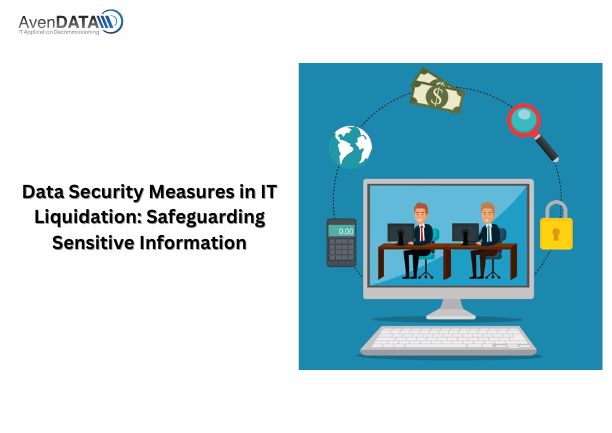
In the fast-paced world of business, companies are often faced with the need to liquidate their IT assets due to various reasons such as restructuring, mergers, or technological advancements. However, amidst the rush to dispose of hardware and software, one critical aspect that must not be overlooked is data security. In today’s digital age, where data breaches and cyber threats are rampant, ensuring the protection of sensitive information during IT liquidation is paramount. Let’s explore some essential data security measures that organizations should implement to safeguard their valuable data during the liquidation process.
1. Data Inventory and Classification: Before initiating the liquidation process, organizations should conduct a comprehensive inventory of all data stored on their IT assets. This includes identifying sensitive information such as customer data, financial records, intellectual property, and proprietary business information. Once the data is inventoried, classify it based on its sensitivity level to prioritize protection efforts.
2. Data Encryption: Encrypting data is an effective way to protect it from unauthorized access, even if the hardware falls into the wrong hands. Implement robust encryption protocols to encrypt data both at rest and in transit. This ensures that even if the hardware is sold or disposed of, the data remains inaccessible to unauthorized users.
3. Secure Data Erasure: Prior to disposing of hardware assets, it is essential to securely erase all data stored on them. Simply deleting files or formatting drives may not completely remove sensitive information, as it can still be recovered using data recovery tools. Employ certified data erasure methods such as overwriting, degaussing, or physical destruction to ensure data irreversibility.
4. Compliance with Data Protection Regulations: Organizations must adhere to relevant data protection regulations such as GDPR, HIPAA, or CCPA when handling and disposing of sensitive data during IT liquidation. Ensure that the liquidation process complies with all legal requirements regarding data privacy, security, and disclosure. Failure to comply with regulations can result in severe penalties and reputational damage.
5. Vendor Due Diligence: When selecting vendors or service providers for IT asset disposal, conduct thorough due diligence to ensure they have robust data security practices in place. Verify that the vendor follows industry-standard protocols for data erasure and disposal and request documentation certifying compliance with data protection regulations.
6. Chain of Custody Tracking: Maintain a detailed chain of custody log to track the movement and handling of IT assets throughout the liquidation process. Document each step of the data disposal process, including who accessed the data, when, and for what purpose. This provides accountability and transparency and helps mitigate the risk of data breaches.
7. Employee Training and Awareness: Educate employees involved in the liquidation process about the importance of data security and their role in safeguarding sensitive information. Provide training on best practices for data handling, secure data erasure methods, and recognizing potential security threats such as phishing scams or social engineering attacks.
8. Regular Security Audits and Assessments: Conduct regular security audits and assessments to identify vulnerabilities in data security practices and infrastructure. Perform penetration testing, vulnerability scanning, and risk assessments to proactively identify and address potential security gaps. Regular audits help ensure ongoing compliance with data protection standards and industry best practices.
In conclusion, data security should be a top priority during IT liquidation to mitigate the risk of data breaches, regulatory non-compliance, and reputational damage. By implementing robust data security measures such as encryption, secure data erasure, compliance with regulations, and employee training, organizations can effectively safeguard their sensitive information throughout the liquidation process.







